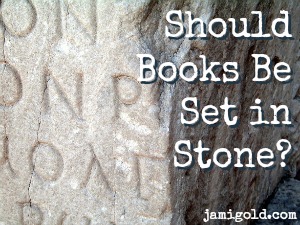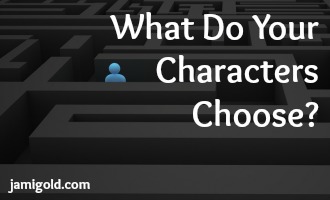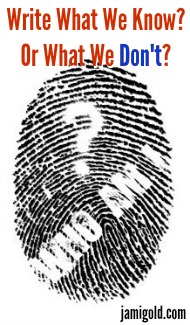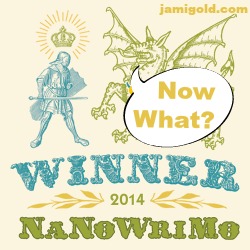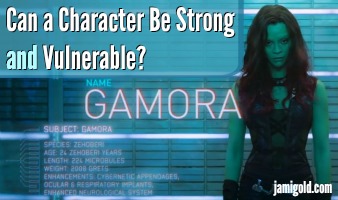In traditional publishing, authors (and their readers) are often stuck with errors, but with ebooks, POD, and self-publishing, files are easy to fix and upload. Should authors make changes, or should books be set in stone?
Pin It
Read More
This year at RWA, I was eligible to attend special published-authors-only workshops geared toward those with more experience, and I want to share some of the highlights from those workshops, as I think we can all benefit from many of the insights.
Pin It
Read More
Ashley asked a question in the comments last week that gets at the heart of strong, proactive characters. Even in literary fiction, characters are usually faced with making choices, and whatever triggers those choices is where we’ll find plot and character agency.
Pin It
Read More
Theme is one of those concepts that can be hard to understand, but by understanding themes, we’ll better satisfy our readers. In the recent debate about the romance genre’s requirement for a happy ending, the controversy comes down to themes, believe it or not. *smile*
Pin It
Read More
Back when I started thinking of self-publishing, one of the first things I researched was cover artists. In my usual over-thinking/over-analyzing way, I uber-researched the cover artist landscape to track down cover artists and design trends. And I figured some of what I learned might be helpful to others.
Pin It
Read More
One truism in writing that’s often repeated is “write what you know.” But that advice can be harmful—at least for fiction writing. I much prefer the advice: Write what you want to learn about. Being open to learning new things for our writing can enrich our lives—and be fun!
Pin It
Read More
Whether we won NaNoWriMo or not, we survived November, and I want to take a moment to gasp—er, breathe. After everything that went wrong with my month, winning feels like a miracle. So let’s talk about how we can move forward from any draft, NaNo or not.
Pin It
Read More
If we want our protagonists to seem heroic, they need to have strong traits. Yet at the same time, if we want our protagonists to be relatable, they need have vulnerabilities. This is never an easy balance, especially when clichés fill our heads about what a “strong character” means.
Pin It
Read More
Diverse books are important—not simply for the sake of diversity—but so that by sheer number of representations, any one type of character isn’t limited to a stereotype. The truth is that we are all diverse. No one stereotypical character will ever represent us, no matter our color, nationality, or background.
Pin It
Read More
Jami Gold’s Writing Worksheets: Help for all writers, from newbies to experts and from plotters to pantsers.
Read More

